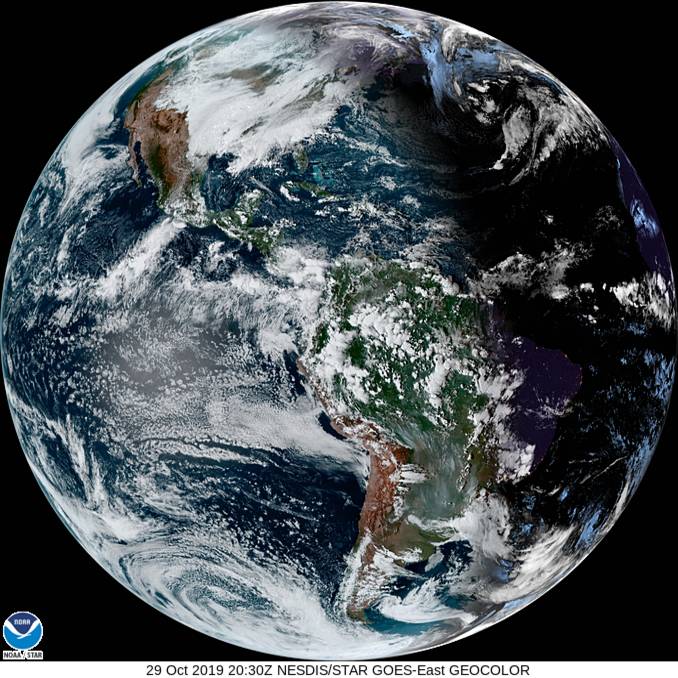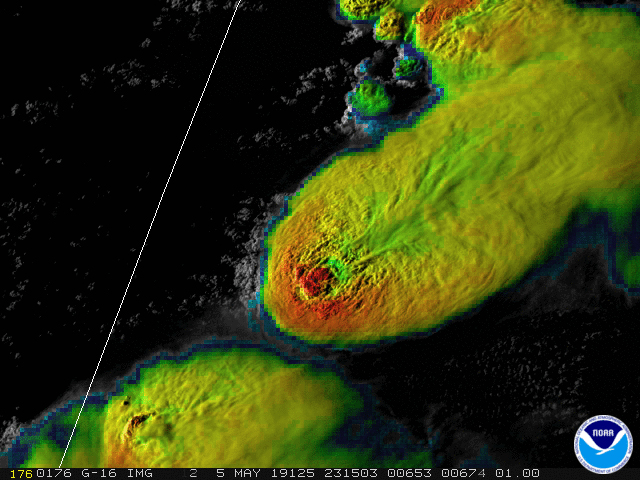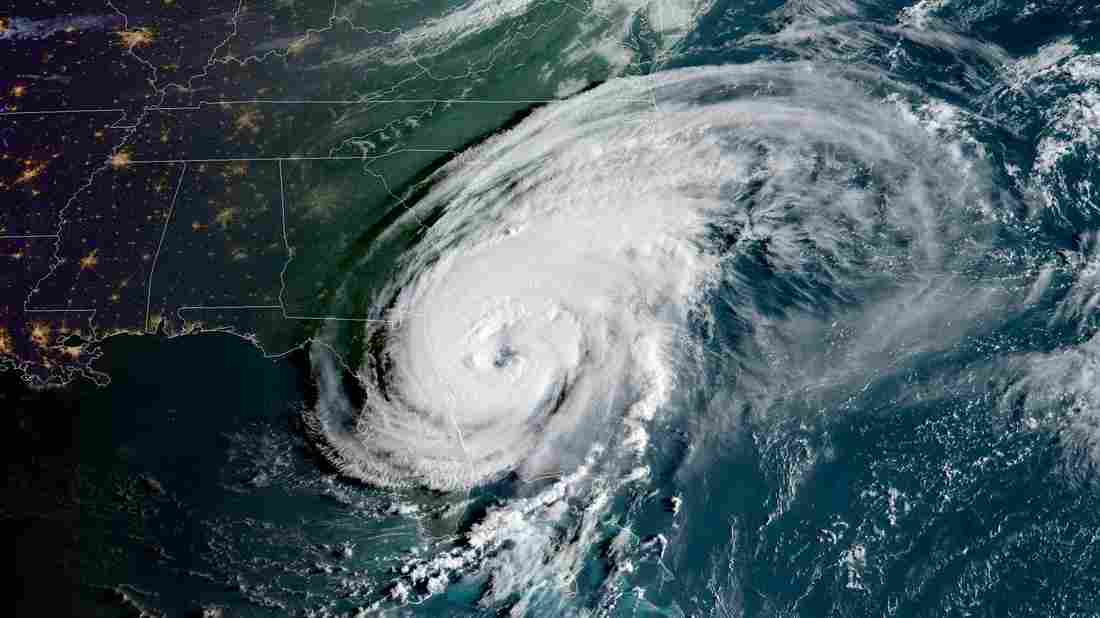Powerful thunderstorms rage across the Prairies. Will they spawn damaging tornadoes, and if so, where? Blizzard conditions threaten to shut down the Greater Toronto Area, possibly for days, but who will be hardest hit? A hurricane approaches Atlantic Canada, packing devastating winds and heavy rain. Will it make landfall at high-tide, making its impacts even worse? These questions would be difficult or impossible to answer if we did not have satellites imaging our weather from space.
I have always looked up at the night sky in wonder, but after studying meteorology I learned to appreciate space for more than just its splendor.
Once a disjointed practice which was only relevant to a forecaster’s immediate area, weather forecasting has advanced significantly due to our access to space.

GOES-16, one of the most advanced geostationary weather satellites in operation, snapped this ‘full disk’ image of the western hemisphere on October 29, 2019. (Credit: NOAA)

GOES-16 tracks a violent, tornadic supercell thunderstorm in the Texas Panhandle, on May 5, 2019. The colours in this animation/image represent cloud-top temperatures, with reds being the coldest temperatures, and thus showing the tallest clouds. (Credit: NOAA)

GOES-16, one of the most advanced geostationary weather satellites in operation, snapped this ‘full disk’ image of the western hemisphere on October 29, 2019. (Credit: NOAA)
Launching satellites suddenly empowered us to be “outside, looking in”, to see an entire hemisphere’s weather, all at once. More powerful, still, we can track how weather moves and better see large-scale patterns, to improve our ability to forecast the future.
Couple this with providing day-to-day comparisons of our ecosystems, satellites have allowed us to gather crucial evidence of the impacts of global warming and climate change. Without those “eyes in the sky”, we would be years – possibly decades – behind our current knowledge of the climate crisis, and we may have only realized the dangers when it was far too late.
This is why space matters so much. Weather and climate change impact us all, and with Canada seeing more than its fair share of impacts from both, it is crucial that we continue our commitments to both developing new space technologies and to participating in space missions. The information we gather from space can literally save us from disaster.

Scott Sutherland
He is a meteorologist and science writer with The Weather Network, where he reports on weather, climate change, astronomy and human space exploration.


